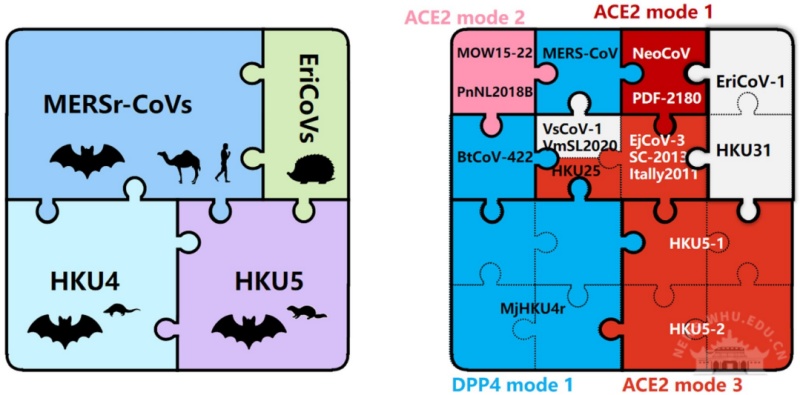
A research team led by Professor Yan Huan from the College of Life Sciences at Wuhan University, in collaboration with Professor David Veesler's group at the University of Washington, has published a groundbreaking study in Nature Microbiology.
The paper, HKU25 Clade MERS-Related Coronaviruses Use ACE2 as a Functional Receptor, uncovers that HKU25-related MERS clade coronaviruses (HKU25r-CoVs) utilize angiotensin-converting enzyme 2 (ACE2) as their functional receptor, challenging the previous understanding that these viruses primarily used dipeptidyl peptidase 4 (DPP4).
The study employed cryo-electron microscopy (cryo-EM) and other functional assays to explore the diversity of receptor usage among these viruses. It was found that some viruses within this clade bind ACE2 in a manner similar to HKU5, suggesting a shared evolutionary origin for the receptor-binding domains (RBDs) of these viruses.
These findings highlight the complexity and diversity of receptor usage among MERS-related coronaviruses, enhancing our understanding of coronavirus receptor interactions. This knowledge is crucial for preparing against potential future epidemics.
The study also revealed that HKU25-related coronaviruses are sensitive to broad-spectrum neutralizing antibodies, such as 76E1, and to peptide inhibitors targeting the fusion process, such as EK1C4.